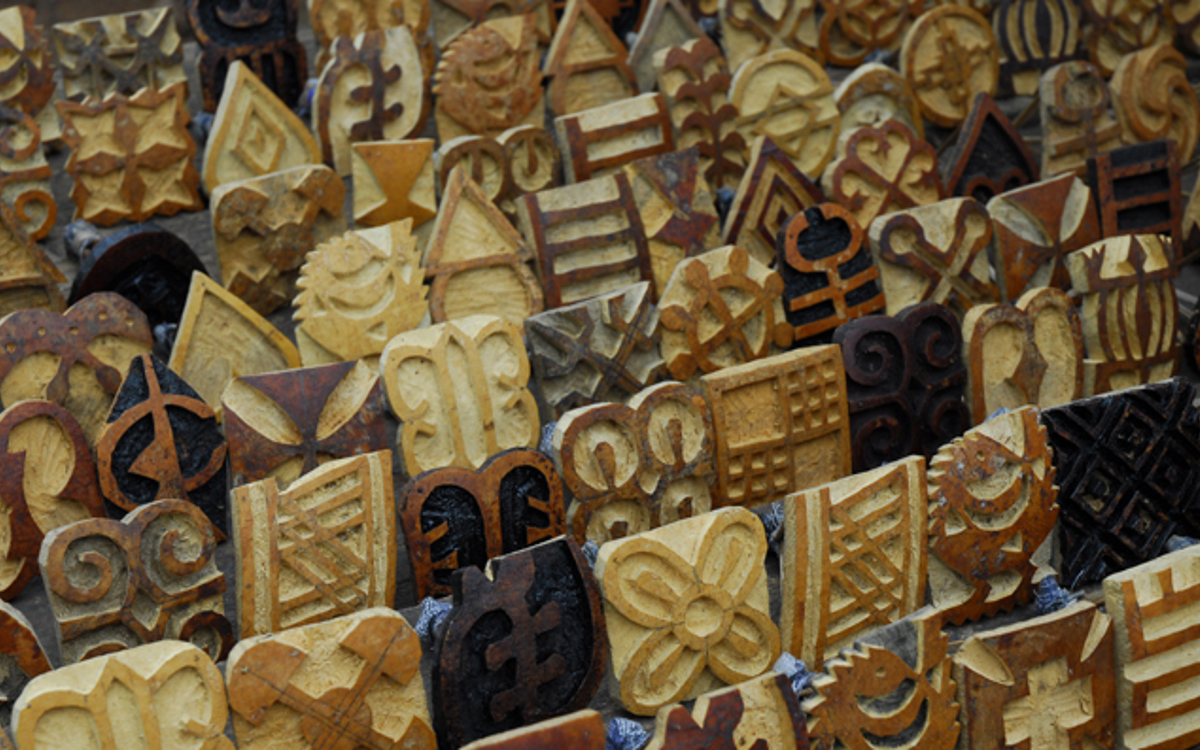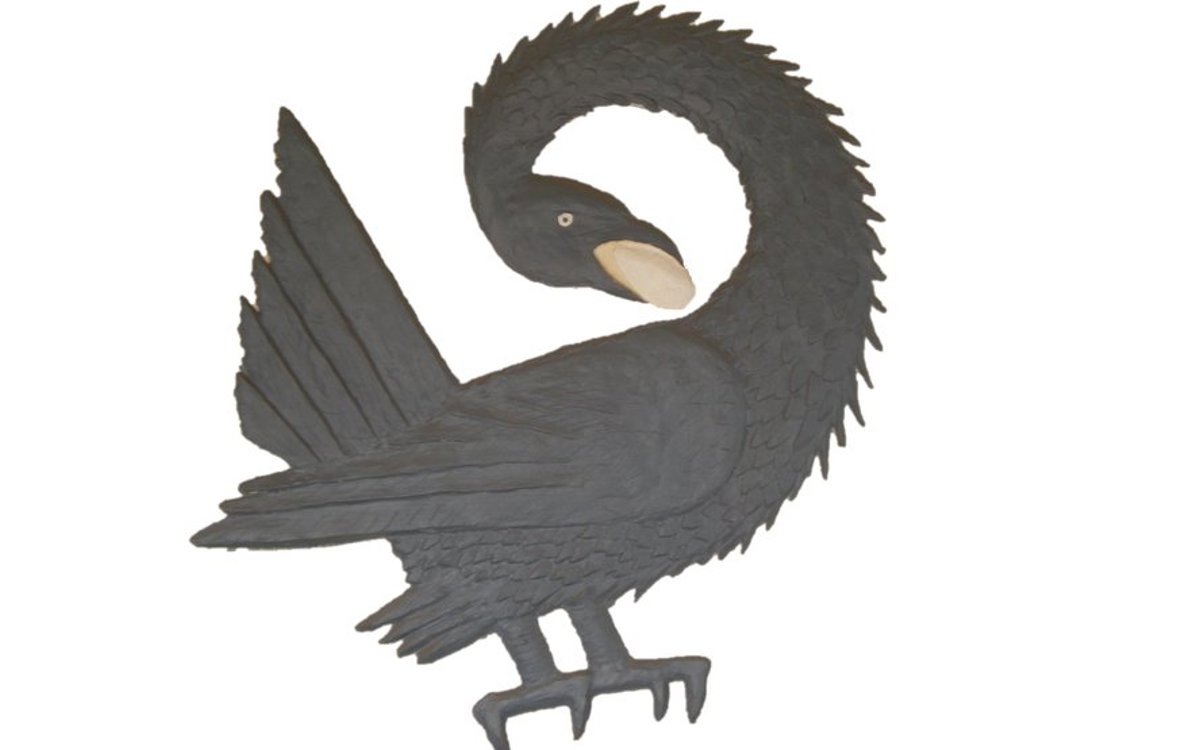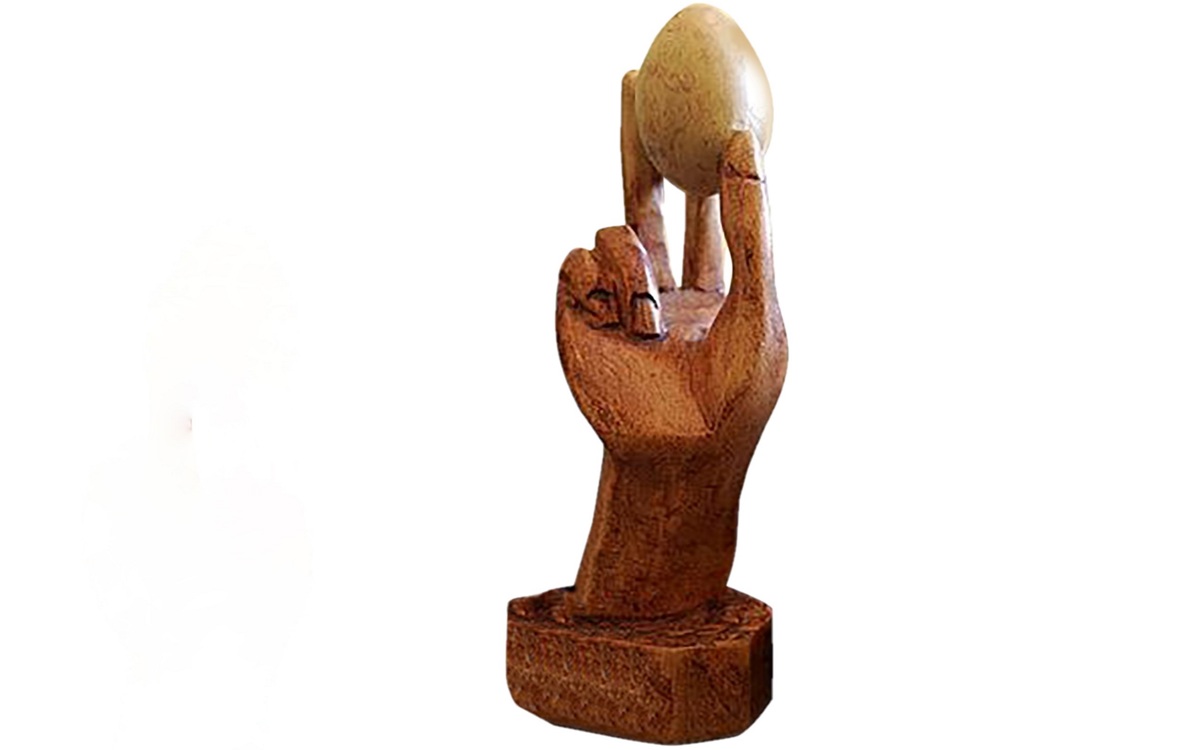How indigenous knowledge can help us think critically and consciously about the world around us.
By Paul Banahene Adjei, Memorial University of Newfoundland, Canada, and Isaac Darko, Burman University

Indigenous knowledge can help us to think critically and consciously about the world around us.
By Paul Banahene Adjei, Memorial University of Newfoundland, Canada, and Isaac Darko, Burman University
‘Tete wobi kyere’ is a popular proverb among the Akan people of Ghana that literally means ‘Ancients have a lot to teach’. The proverb speaks to the important lessons that can be drawn from centuries of wisdom to chart a new path for the future. But can ancient wisdom help us to create a new, more inclusive path for higher education? This article looks to the philosophies contained in the proverbs and symbols of the Akan people to explore how universities can draw on Indigenous knowledge to impart a wider, critical understanding of the world around us.
Indigenous voices and ways of knowing remain devalued and negated in universities across the world. In Canada, studies tell us that many Indigenous students continue to feel marginalised and unwelcome in their institutions. In a 2018 study by Indspire, students of First Nation, Inuit and Metis backgrounds spoke of the pain and frustration of having their culture, knowledge, and worldviews misrepresented in course content. In some cases, Indigenous students were given the responsibility of being the ‘Indigenous point of view’, expected to teach other students about Indigenous knowledge.
Another Akan saying suggests: ‘When one hangs at the peak of a cliff, any step backwards is progress’. Akan people understand this proverb to mean that, sometimes, the most effective way to look for answers in a seemingly unsolvable situation is to pause, step back, and reflect critically on one’s actions as well as one’s thinking. The politics of Indigenising education in Commonwealth countries require that educators pause, step backwards, and rethink new and varied ways of creating spaces that allow for multiple knowledge systems and offer a more inclusive learning environment for Indigenous students and staff.
The search for understanding
Indigenous knowledge is a body of knowledge associated with the long-term occupancy of, or attachment to, a certain place. It is knowledge that informs, shapes, guides, organises, and regulates how people come to know about themselves, their worlds, and place within their world, emerging from the collective voices, experiences, history, cultures, and worldview of local people over generations.
Indigenous proverbs, symbols, music, poetry, rituals, and mythologies are often critical literary expressions that carry the values, cultural generalisations, and philosophical tenets of the communities to which they belong. Crucially, this body of knowledge is not created out of context but rather circumstances or events call for its creation.
This is illustrated in the story of a newly installed Akan chief, who invited to his palace a well-known orator in proverb speaking to share his wisdom. The orator asked the chief to close his eyes for a few seconds and open them, whereupon the orator asked: ‘What dream did you have upon closing your eyes?’ The chief replied that since he had not slept, he could not possibly have dreamt. The orator replied, ‘woana a wonso da ye; asem nbaaye a wonbu mu be’, meaning just as one can only dream after sleeping, so proverbs are made when there is an issue.
Indigenous philosophies constitute the collective wisdom of ages that cannot be conveniently dismissed or ignored. This knowledge exists and functions with a great degree of sophistication, complexity, and conceptual thinking. Indeed, many scholars have argued that Indigenous knowledge is a form of philosophy because of the deep critical reflections it elicits about the world and humans’ place within it.
Drawing on such bodies of knowledge can enhance critical thinking in universities. But what do we mean by ‘critical thinking’? Joanne Kurfiss defines it eloquently as: ‘The process of figuring out what to believe or not about a situation, phenomenon, problem or controversy for which no single definitive answer or solution exists’. The term implies a diligent, open-minded search for understanding, rather than the discovery of a necessary conclusion.
By emphasising critical thinking in universities, we encourage complex readings of societal problems and an ability to recognise and analyse systems of inequality – and this aligns well with Indigenous philosophies. Embodied within Akan proverbs and symbolism, for example, are positive messages that can be used to educate us about our social responsibilities, as well as some of the cherished values of society – fairness, harmonious coexistence, and social justice.
The proverbial Siamese crocodiles
Funtufunefu denkyemfunefu is the symbol of the Siamese crocodiles, who have two heads, two tails, four eyes, eight legs, and eight feet, yet they share one stomach. The symbol carries an Akan proverb: ‘Funtufunefu, denkyemfunefu, wͻn efunu bom baako nanso wo didi a na wo reko’, which loosely translates as ‘Siamese crocodiles may have one stomach yet they fight over food’. The irony here is that both crocodiles eat into the same stomach; therefore, regardless of who is chewing the food, they both benefit. Greed and selfishness, however, distract the crocodiles from seeing the bigger picture: that they both eat for a common purpose.

The symbol illustrates the paradox of human greed and self-centredness that may rob us of our ability to see the logic in collaborating with those who share our common interest. Just as fighting over food delays the crocodiles’ satisfaction, many of us may lose ground that could easily have been gained if people with a common interest worked together. The message of the Siamese crocodiles is very clear: those who want a meaningful life must act in the collective interest of others, especially when their goals are intertwined. For no one truly wins until the victory positively impacts everyone.
In this way, the symbol reminds us that cooperation, rather than competition, may be the key to progress. In today’s competitive global market, where a culture of individualism and competition is the norm, it is often easier for one to act with self-interest and self-preservation in mind. However, the metaphor of the Siamese crocodiles teaches us that the ‘self’ is not always autonomous. Often, survival and self-preservation require cooperation with others.
Returning to that which is forgotten
The symbol of sankofa simply means ‘return for it.’ In the symbol, a mythical bird is moving forward while its head leans back to pick up an egg. The egg represents the cycle of life, which in itself is a ‘gem’ or, in the context of Akan symbolism, the knowledge and wisdom of the past. The sankofa symbol carries an Akan proverb ‘Sε wo were fi na wosan ko fa a yenkyi’, which translates as: ‘There is nothing taboo about returning to that which is forgotten’. Coded in the symbol is the message that the quest for knowledge cannot exclude ancient wisdom and experience.

In thinking about sankofa, we are reminded of the astute words of Verges that ‘history is always ambivalent, for the place it gives to the past is equally a means to open the way to the future’. Sankofa teaches the importance of history in human and societal development. Human experience is a continuum of past, present, and future; the past cannot be buried and forgotten because it weighs continuously on our today and tomorrow. As the bird leans back to pick up something while moving forward, we are reminded that the past is needed to recreate the future. This ‘lean back’ is not necessarily a journey towards uncritical glorification of the past, but rather ‘the realization that the past, history, culture, and local knowledge have a role to play in fashioning modern solutions’ (George Dei). This is the metaphor of sankofa.
Power is as fragile as an egg
In another Akan symbol, a hand is shown holding an egg in a very delicate manner. The symbol carries the Akan proverb: ‘Tumi tesε nkosua, wo somu den a εpae; wo somu merε nso a εbͻ’, which translates loosely as ‘Power is as fragile as an egg; those who hold it too tightly and those who hold it loosely all risk breaking it’.

Eggs have significant ritual meaning to the Akans. An egg is considered to be sacred and represents the life cycle. ‘A broken egg’ can be used euphemistically to describe the death of a person. Eggs are also potent and can be both life-giving and destructive. For instance, Akans believe that a curse of death or destruction can be invoked when negative words are pronounced on a person accompanied by the breaking of eggs. Curses may also be reversed with the use of eggs.
By associating power with an egg, the Akans highlight the fragility of power as well as its potency: it may be a force for good or a force for evil, depending on how it is handled. And, like an egg, power held in one hand is rarely safe. A hand holding an egg is understood to mean that power, and the wielding of it, is never absolute and nor should it lead to tyrannical rule. Instead, it should be exercised cautiously and judiciously. In this, the symbol reminds us that the opportunity to wield power is a call for responsibility and not an opportunity to lord over others. Those in society who have misunderstood this wisdom are likely to lose their power, rather than hold on to it.
Arguably, a central role of universities in any pluralistic society is to explore ways in which all learners can develop a sense of ownership in the creation and production of knowledge, which is vital to their participation in society. Such an education looks beyond certification, accreditation, and performance indicators to that which prepares us to be well-rounded individuals; citizens who possess the attributes of a strong, caring, and compassionate character and who appreciate their rights and responsibilities as members of a global community.
From the fragility of power when held in one hand to the entangled heads of those selfish and greedy crocodiles, Indigenous knowledge has much to teach us about our social responsibilities and the importance of thinking critically and consciously about the world and our place within it.
Dr Paul Banahene Adjei is the Interim Associate Dean of Graduate Programs and Research, and Associate Professor at the School of Social Work, at Memorial University of Newfoundland, Canada.
Dr Isaac Darko is Assistant Professor of Education at Burman University, Canada.
Both authors are of Akan of Ghana heritage.
Images (from top): Calabash adinkra stamps, photographed by ArtProf via Wikimedia Commons, licensed under CC BY-SA 3.0. Siamese crocodiles courtesy of The Trustees of the British Museum, licensed under CC BY-NC-SA 4.0. Sankofa photographed by bagaball on Flickr, licensed under CC BY 2.0
The Commonwealth Peace and Reconciliation Network is a global academic forum for universities to share knowledge and experience around higher education's contribution to truth-telling and reconciliation.

